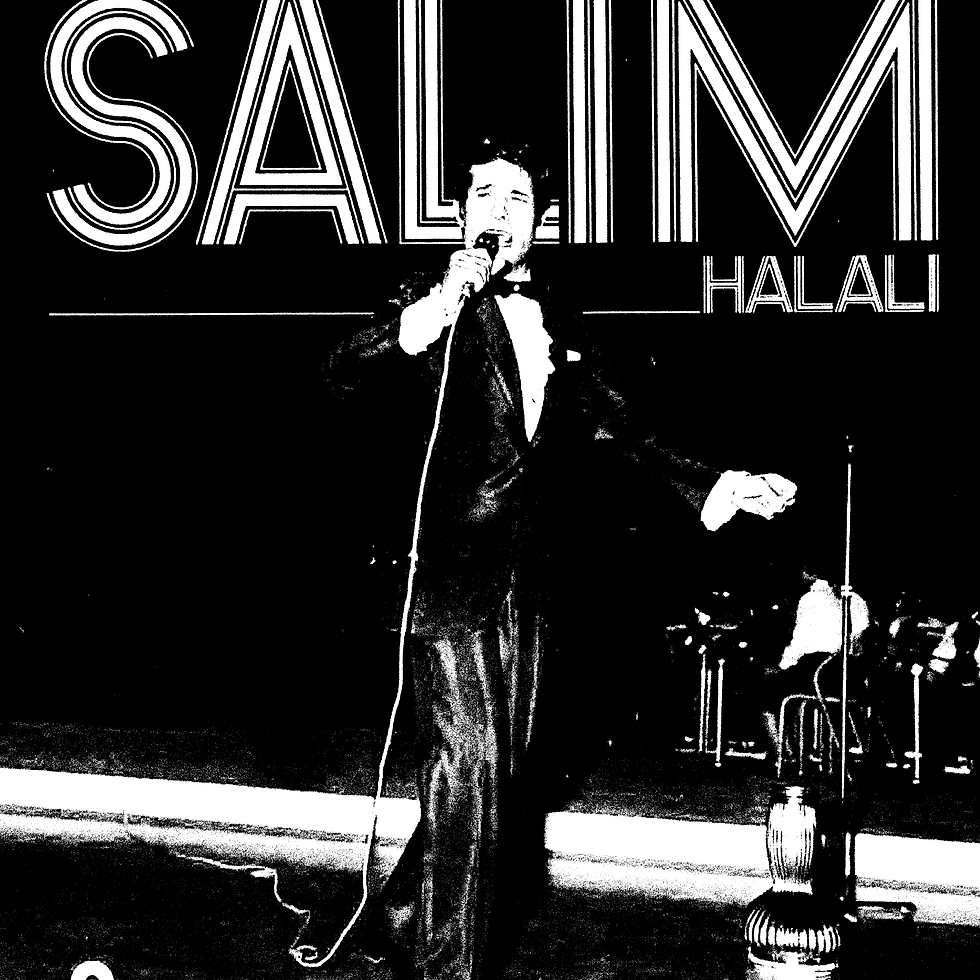RE-ISSUE DATE: APR 2025
"Habbit / Houbek Fi-el-Qelb", recorded by Salim Halali and accompanied by Orchestre El-Kamal, was released in 1939 on a 78 RPM shellac disc under the French Pathé label. It stands as one of the earliest examples of the Moroccan chanson style—a unique blend of North African melodic traditions and European orchestral arrangements. Halali, a pioneering singer of Algerian-Moroccan Jewish descent, rose to fame in both the Maghreb and Parisian cabaret scenes. The songs, featuring romantic Arabic lyrics, offer a rich glimpse into the cultural and musical world of North African Jews and Muslims before the upheavals of migration and exile. Today, the record is considered a rare artifact and a vital piece of a once-vibrant musical heritage.

Salim Halali (born Simon Halali, 1920–2005) was a celebrated Algerian singer known for his interpretation of Algerian and Andalusian-Arab classical music. Though not formally trained in traditional Andalusian music, Halali became a successful pop artist, beloved in North Africa and among North African Jewish and Muslim communities in France, where he was also recognized as an icon of Franco-Arab cabaret. Born in Annaba to a Turkish father and a Berber-Jewish mother, he moved to Paris in 1937 and quickly rose to prominence, collaborating with musicians like Mohamed El Kamal and Mohand Iguerbouchène, composing hits such as “Andaloussia” and “Monira.” During the Nazi occupation, his Jewish identity was hidden with the help of the rector of the Grand Mosque of Paris. After the war, he opened the famed Parisian cabaret Folies Ismaïlia and later the luxurious Le Coq d'Or in Casablanca, attracting high society and collaborating with notable artists like Haja El Hamdaouia and Haim Botbol

fluid, borderless, and deeply resonant in today’s search for cross-cultural understanding
Halali’s repertoire combined Arabic vocals with flamenco and French cabaret, and he was also known as a gifted darbuka player. His identity as an openly gay, anti-Zionist Jewish performer made him a complex and groundbreaking figure. Though he experienced hostility when performing in Israel, he remained admired by many, including Umm Kulthum. In his later years, he lived in Cannes and continued performing privately until 1992. He passed away in 2005, and his ashes were scattered in Nice as per his request.
Reviving his legacy through reissues represents a unique and layered chapter in the musical identity of North Africa and the Middle East—a hybrid voice of a Berber-Jewish homosexual artist who moved between flamenco and cabaret, Andalusian traditions and folk music, Paris and Casablanca. His life and music evoke a shared Jewish-Arab past often forgotten or silenced by nationalist and religious narratives. Rediscovering his work reconnects us with a pre-partition North African pop culture—fluid, borderless, and deeply resonant in today’s search for cross-cultural understanding.



TRACK LIST

Salim Halali - A queer Jewish Algerian artist navigating colonial hierarchies, cultural expectations, and personal freedom.
RELEASE
NO.03
SALIM
HALALI
© 2025 Lost Tracks.
Imprint - policy privacy